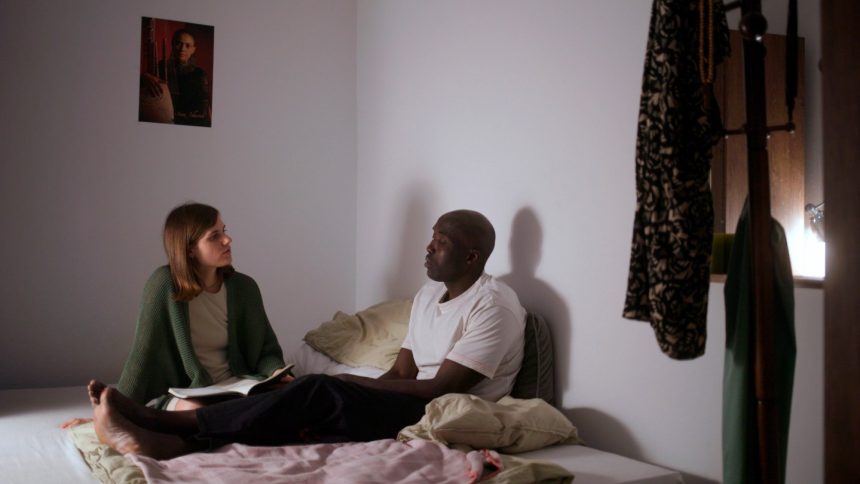‘Our Time Will Come’ Explores Interracial Love and How to Bridge Cultural Differences
Berlin-based Austrian filmmaker Ivette Löcker (Night Shifts, Ties That Bind) likes to go deep on human relationships and connections.
“My previous films have very often dealt with relationships, different kinds of relationships,” she tells THR on the sidelines of the 31st edition of the Sarajevo Film Festival, where her latest documentary, Our Time Will Come (Unsere Zeit wird kommen), screens in the feature documentary competition program. “And I was very much interested in this kind of interracial relationship, because I think it’s getting more and more common. As members of the white majority, we have to get used to and get to know more about these kinds of relationships.”
The synopsis on the Sarajevo festival website sums up the movie’s focus this way: “After years of uncertainty and involuntary exile, Siaka from Gambia and his wife Victoria have returned to their adopted ‘homeland’ of Austria to build a stable existence and start a family. Both invest a large part of their energy in achieving their shared utopia, but cultural differences remain significant, social structures remain immobile, and their own history and traditions are just as hard to shake off.”
The website of the Berlin Film Festival, where the movie world premiered, described it as “the portrait of a love between cultures that endures despite all difficulties in an Austria increasingly moving towards authoritarianism” amid the rise of a populist right-wing party. “Racism is a sickness,” Siaka says in letting off steam in one scene of the doc.
You Might Also Like
The film mixes observational filming with interviews with Victoria, Siaka and the couple together. And it takes viewers from Vienna to Gambia. Löcker doesn’t use any label for her cinematic style, but highlights that in addition to fly-on-the-wall scenes and conversations with the couple, she also typically likes to “pursue a quiet, rather poetic style of visuals.”
“For me, it’s a [story] of modern love, because it’s so common to not live in your home country anymore,” Löcker explains.
The genesis of the film is very unusual. “I was approached by this couple, which was very new for me,” the director recalls. “They asked if their story could be an interesting topic for a documentary film. I was thrilled to get to know them.” The back story is that Löcker had met Victoria at an Austrian film festival, Diagonale in Graz, in 2017, that screened “her short experimental film before my feature film,” namely Victoria’s short film Kanten (Grenzen) before Löcker’s Ties That Bind.
“We met at the festival, and then that same year, she met her now-husband, and we just stayed in contact,” Löcker explains. Years later, Victoria wrote to her to share that the couple was now married and that her husband had an interesting immigrant story. And she asked if Löcker or someone she knew may be interested in documenting his, and their, story.
“When we had research interviews via Zoom, because it was still during the pandemic, I realized that it is very fascinating how they, as a couple, deal with each other, how they communicate, how they try to bridge cultural differences. I wanted to tell [a film] about these challenges, so I asked them if they could imagine giving us insight into an interracial couple. I am very happy that they agreed to this.”
The filmmaker followed the couple for a year after Siaka had received his residency and work permits. “For me, it was interesting to portray them in a year when these kinds of questions and struggles were already more or less behind them, because my premise was: How do they deal with everyday life?”
While Löcker initially expected a focus on the couple, that theme expanded to a focus on family. “After all, especially Siaka was longing for a child and family. So, this topic or theme was getting more and more important for the film.”
Löcker also wanted to tell a more global story. “Our goal was to make a film that has, of course, the specific story with their specific problems, but that also shows more so that people can relate from wherever they may be or be from, whether they have migrant stories or not. I think people can relate to these kinds of challenges.”
What’s next for the filmmaker? “I have a new project, and we will try to start the financing process on it in September,” Löcker tells THR and teases some details about the project. “It will be about female friendship. This time, I will work with more protagonists, which is something rather new for me.”


